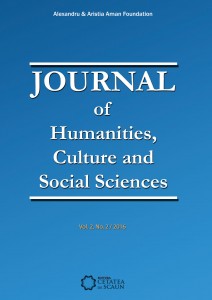Cultural contexts and gender differences in adressing work-family conflict
Cultural contexts and gender differences in adressing work-family conflict
Author(s): Livia PoganSubject(s): Gender Studies, Labor relations, Evaluation research, Family and social welfare
Published by: Alexandru and Aristia Aman Foundation
Keywords: work-family conflict; cultural values; gender differences; social role;
Summary/Abstract: The need to balance work and private life is an actual phenomenon, with global coverage, as well as the demographic processes that determine it. Although even from the beginning of humanity, adult activity was divided mainly between family and work, changes in economic, social and demographic that occurred in recent decades have led to bringing work-family conflict to the attention of researchers. At European Union level, for example, Member States are invited "to take appropriate measures to promote a better balance between work and private life for women and men" in light of the recommendations of the European Pact for equality between women and men 2011- 2020 (European Union Council, 2014: 10). Recent cross-cultural patterns of work-family conflict literature are promoting the moderating role of cultural characteristics in terms of experiencing this conflict and the impact of its consequences. The sociocultural variables that are frequently bandied include gender roles ideology and horizontally and vertically individualism / collectivism (according to Hofstede's factor analysis), to which are added political and contextual variables.
Journal: Journal of Humanities, Culture and Social Sciences
- Issue Year: 2/2016
- Issue No: 02
- Page Range: 85-94
- Page Count: 10
- Language: English

